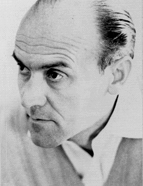

As a result principally of the investigations he had made during his years in England, his historiographical work revolved around the reign of D. Pedro V. It was in Coimbra, with Damião Peres, that he started the study of what he called the first modern man in Portugal to record by his own hand what was important in his times, his country, and his people. In the British archives he found unpublished documents, letters and diaries. Amongst the most important were D. Pedro’s correspondence with Prince Albert, and with the Marquis of Lavradio. In 1955, the Associação Comercial de Lisboa awarded him the Silva Martha prize for his book Cartas de D. Pedro V ao Príncipe Alberto (1954). Writing about these letters he would note, with an often human touch more normally used in historical biography, a genre much practised in England, that they gave him the feeling that he was in the presence of caring and hesitant D. Pedro, suspicious of his subjects, who sought advice from members of his family just like any other person. As a historian, Leitão described what he thought the monarch’s views were on his country, while still leaving the impression that, a hundred years later, little had changed. In contrast with his somewhat heroic portrait of the young king, he described some of the main features of the national decline: the liberal regime was losing its way in unnecessary conflicts; successive finance ministers were unable to deal with the eternal problem of the deficit, and as often as not they aggravated the problem by taking loans from abroad; the press was controlled by the very rich, who used it as they wished; elections did not correspond to the national will; the elected parliamentary deputies were up for sale, often for a high price; there was no education for the common people; there was a lack of will to spread ideas that should be a the heart of all liberalism; and books were little read (D. Pedro V – um homem e um rei). Born on 16 September 1837, eldest son of D. Maria II and Prince Ferdinand of Saxe-Coburg (who held the regency for his son for a little under two years, on account of his age), D. Pedro was considered by Ruben Andresen Leitão to be not just a precocious talent, but a young man who had voluntarily deprived himself of his childhood out of a strong desire for knowledge. Solitary, and aware of the backwardness of his country, he felt the lack of fellow men with whom he could work on the task of modernizing the nation, since everything he attempted fell into the ‘sticky’ hands of his ministers (ibidem). By repeatedly characterizing D. Pedro using adjectives such as ‘solitary’ and ‘aware’ and his ministers as ‘sticky-fingered’, Leitão constructs a somewhat Manichean biography: on the one side the good men (D. Pedro and his uncle Albert, the Conde de Lavradio, and Herculano, men who understood him) and on the other the bad ones (the parliamentary deputies, his ministers, Loulé, Saldanha, and all that was stopping the intelligent young man from dragging his impoverished country in the direction of progress).
